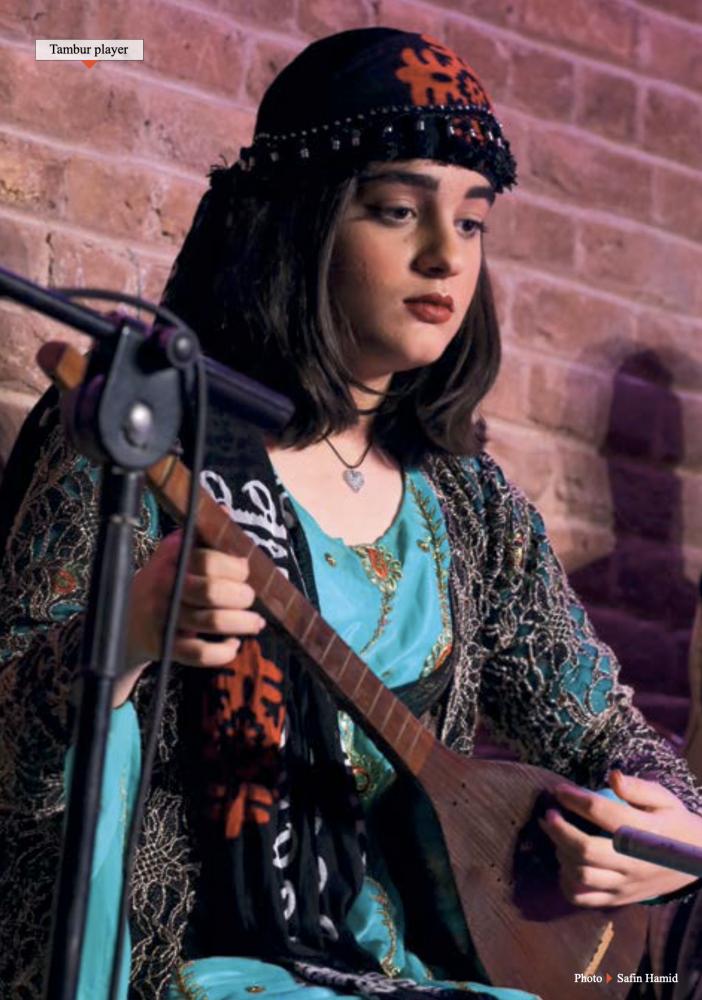The Kurds gained international renown, rather sadly, through wars—be it ones waged against them or they themselves launched for their freedom.
Most recently, they appeared on the world scene through their fierce fighting against ISIS in Syria.
In the four nation-states that came to control the Kurdish homelands following World War I, the experiences of the Kurds have been commonly characterised by severe violence, both symbolic and physical.
For over a century, Kurds have been endeavouring to improve their situation politically while fostering group solidarity by constructing an image of themselves that imbues them with strength, patience, and perseverance. Among other things, this process involved elevating elements of Kurdish culture to the level of national symbols. One of these elements has been music.
The Kurdish elite in the late 19th century who pioneered Kurdish nationalism in the modern sense cited various elements of culture, including literature, myths, proverbs, and legends in their claims for nationhood.
However, music did not capture ideological attention in this way until later in the twentieth century when it was celebrated as a prime element of national culture. From then on, for musicians playing and recording folksongs and for their audiences, the simple act of listening to them became a literal performance of Kurdishness and a demonstration of allegiance to the cause of emancipation.
For the Kurds, the significance of music goes deeper than developing into a performative medium for Kurdishness. Music itself played a vital role in the rise of national sentiment among the Kurds.
From the 1930s onwards, songs invoking the Kurds and Kurdistan were broadcast on the radio across a vast geography, routinely traversing national borders. These songs further consolidated the idea of the Kurdish nation in the minds of their audiences.
Later, in the 1960s, music became a means to enlist support to the burgeoning Kurdish political resistance. It is important to remember that musicians who performed in Kurdish, regardless of their repertoire, risked persecution by state authorities with some even paying for it with their lives.

Music had seldom been devoid of political sentiment for the Kurds. Some of the most prestigious genres of Kurdish oral tradition were based on actual historical events and spoke of the feats of traditional leaders who fought as much among themselves as with the military forces of nation-states.
These genres, which were fashioned after laments musically, were generally regarded as reactionary by Kurdish left-wing organizations of the 1960s and 1970s and thus excluded from nation-building efforts.
In the 1990s, however, they not only met a renewal of interest, but began being exalted as the authentic forms of Kurdish musical and literary performance as well as documents of Kurdish native history. This was particularly fortunate for the performers of these genres, most of whom had long lost the battle against political oppression, the disinterest of the younger generations, and the corrosive effects of television on oral performance.
These performers—commonly known by the name dengbêj—now sit in the highest echelons of Kurdish culture and are mythologized as Kurdish Homers.
Notwithstanding music's immense significance, Kurds long remained audiences of music rather than performers. Most professional musicians in Kurdish society are talented singers and instrumental players as well as local peripatetics (in common parlance, "gipsies") or less commonly, non-Muslims.
Today, Kurdish music is a vibrant cultural domain encompassing a broad array of styles, constantly evolving in the hands of musicians of highly diverse tastes, influences, and aspirations.
Kurdish music appears in all shapes and forms, whether in recognized traditional genres and sound, put to electronic beats, or in a "mashup," a contemporary online music and video concept that has caught on with many musicians.
But music is much more to the Kurds than the musical elements constituting it. For them, music has been a pillar on which Kurdish selfhood stands, a door opening to a past that is fast fading from memory, and an existential risk to even enjoy.
Regardless of the paths that Kurdish music may take in the future, unless Kurds attain political stability and security as a people, music will most assuredly remain a key medium for the conveyance of Kurdish desires for freedom and an anchor of solidarity.
Argun Çakır is an anthropologist and ethnomusicologist specialising in the peripatetic mode of subsistence with a geo-cultural focus on Kurdistan. He is currently a postdoctoral researcher at the University of Bristol, UK. For his PhD, he researched the socioeconomic transformation of peripatetic groups in the area around Mardin (Mêrdîn) in southeastern Turkey. His ethnomusicological work focuses on Kurdish sung oral literature and its performers, especially the kemaçe performance tradition around Mêrdîn.

